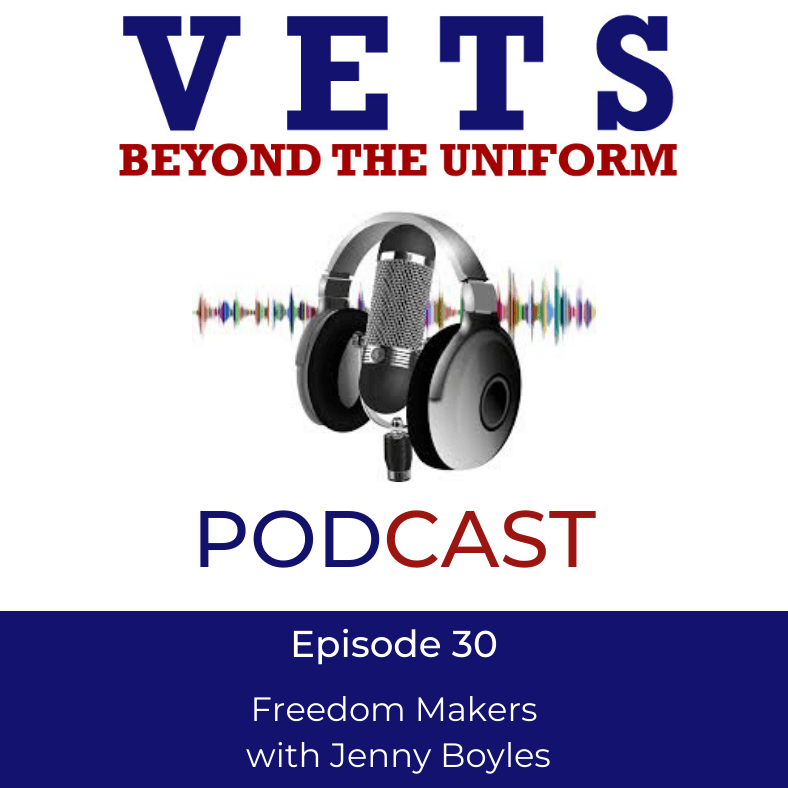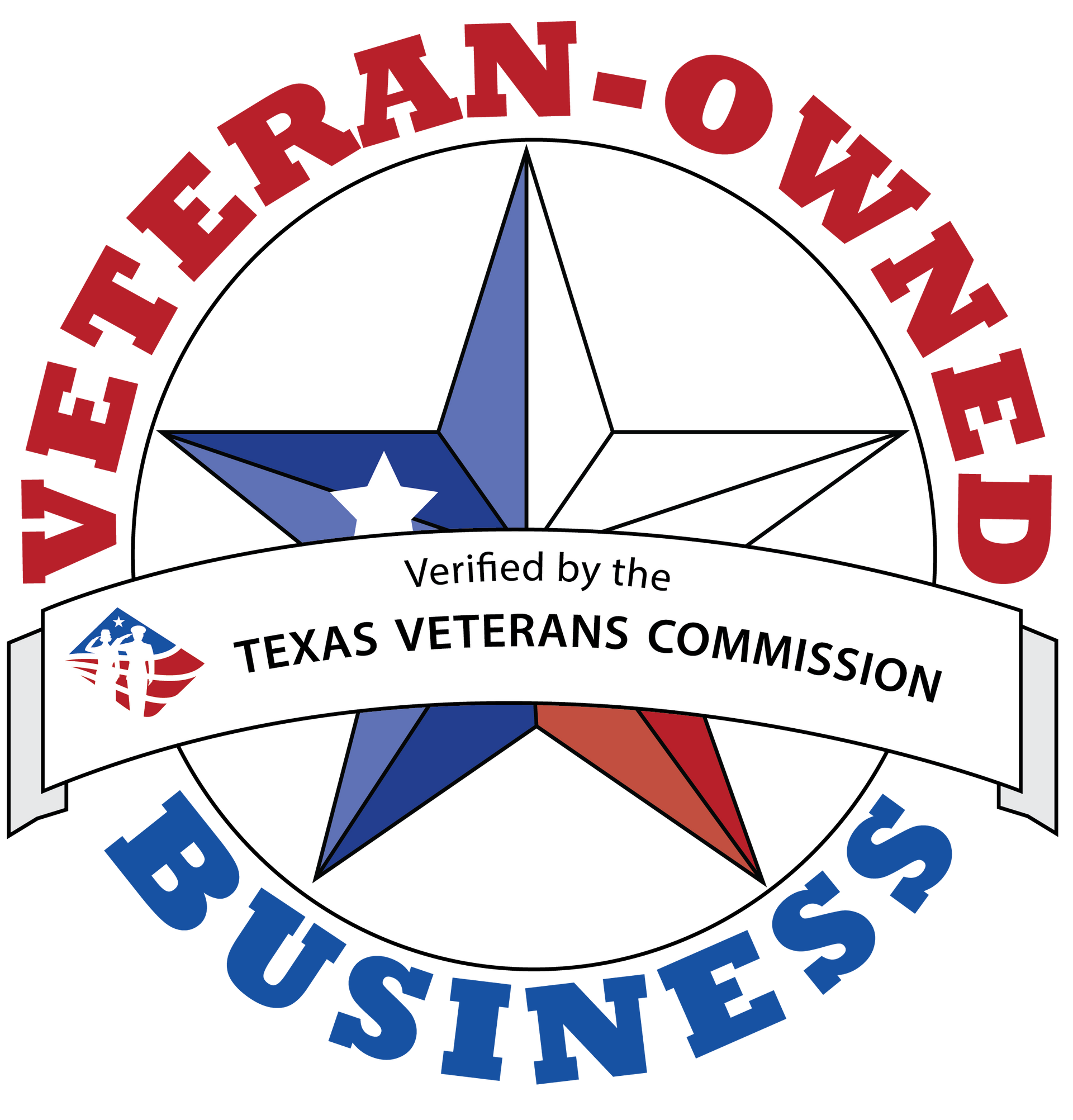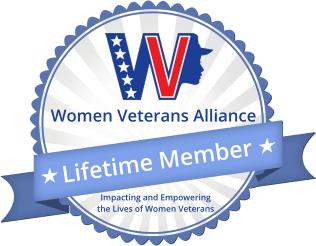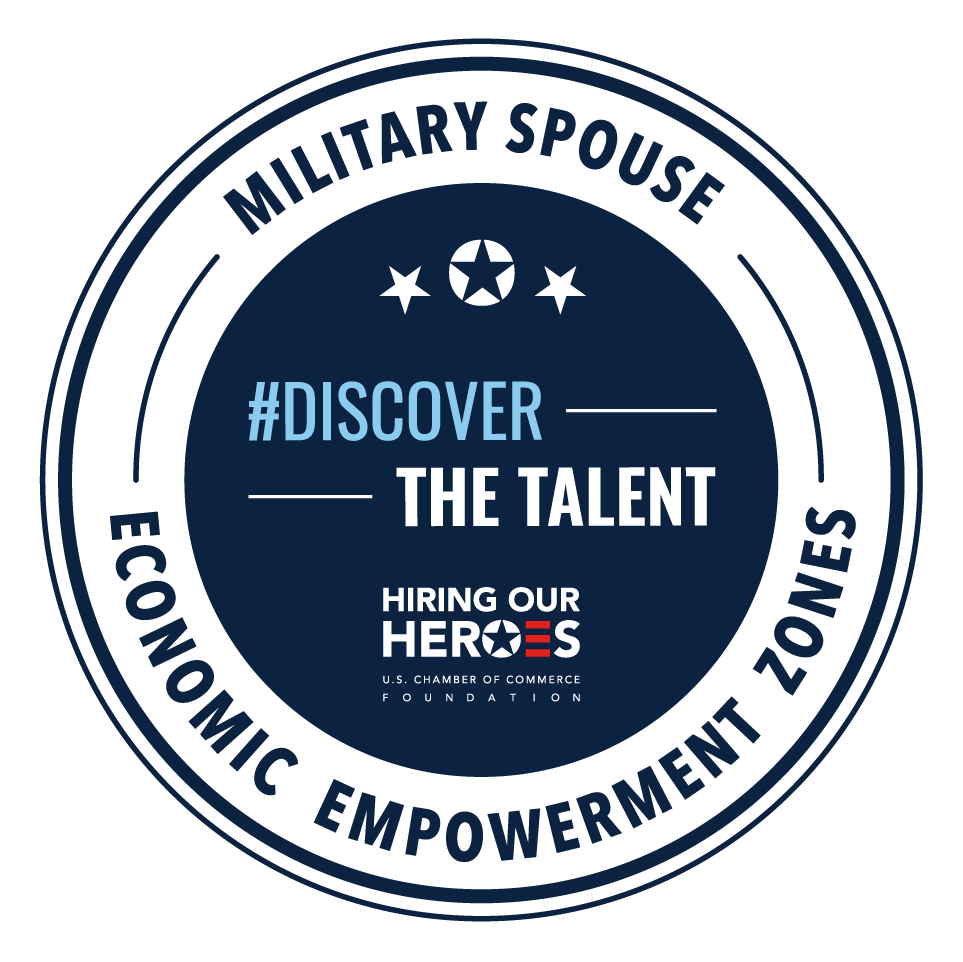VETS - Beyond The Uniform: Helping Military Spouses Become Virtual Assistants
The VETS - Beyond the Uniform podcast is described as an "armchair discussion series with guest business leaders and industry experts to discuss perspectives on helping veterans transition from the military into successful careers in the civilian workplace."
TRANSCRIPT
INTRODUCTION: Welcome to Beyond The Uniform, a weekly podcast that focuses on helping veterans successfully find and integrate into new careers after leaving the military service. Listen in as our host and guest experts share key insights into the successful programs helping veterans to enter and thrive in the civilian workforce. For more information after the program, please visit us at vetsbeyondtheuniform.com. Let's get started.
MALLY: Hello and welcome to the Vets Beyond The Uniform podcast. I am Mally Mancilla and joining me today from Vets Beyond The Uniform, I have Paul Cevolani, Dave Beadle, and Bill Loeber.
On today’s show, we will be talking with Jenny Boyles, Freedom Makers' Success Manager and Marketing Director.
Welcome everyone!
(CROSSTALK)
DAVE: Hi Jenny, it's a pleasure to have you on the show today and we’re talking about the organization that you’re a part of called Freedom Makers. Tell us a little bit about that. What is it? What do you do? How did it come about?
JENNY: Sure! So Freedom Makers is a
virtual assistant company. We are searching for military spouses and veterans. Our mission is to find meaningful flexible work for military spouses and veterans alike, and we support small businesses and entrepreneurs - solopreneurs - with this remote support. Our founder is Laura Renner, and she founded in 2015 after she herself served active duty in the Air Force, and currently still serves in the reserves. But she went on to get her MBA and learned a lot about entrepreneurism and small businesses and virtual work, essentially helping, you know, those types of businesses. So she married the two ideas of the challenge military spouses have and veterans have with finding meaningful work that can transfer between duty stations and this need for administrative support for small businesses. So she married the two and created Freedom Makers.
DAVE: Great! Yeah, you bring up a big point there, which is: what is like the number one challenge the military spouses have with finding meaningful employment and why is that different from the veteran experience?
JENNY: I think that for the military spouses you know, I know for myself, I had my dream job in Washington DC and I met my spouse and I thought, ‘okay well, I'll be able to find a position even though we're moving!’ You know, I met him in DC and we moved to Arizona after that and I wasn't able to find a position so much in my field. I went on to become a teacher, emergency certified and then we moved a year-and-a-half later to Kansas - to Leavenworth, Kansas - for one year. And it just wasn't worth finding a job for just one year, you know? So the PCS moves that happen frequently... it's just hard to continuously put in your resume and then have to tell them that you're leaving. I eventually just stopped and kind of became a full-time volunteer and stay at home mom because I just couldn't take my career with me.
Freedom Makers offers these virtual work opportunities so really you can be anywhere - even overseas - and still serve your client. You know, veterans I think have challenges as well but I think they're a little bit different because if you're a veteran you're probably out and maybe more settled? But I know that for a military spouse, you know, you are part of the military so you’ve got to have something that can move with you.
DAVE: Yeah! I think that that is the big challenge. And the other people we've talked to (military spouses) the other issues that they run across is if particularly they are in a profession that requires any kind of license or certification? Often those don’t transfer from state to state. And we've run into a couple of attorneys and the process to get the bar exam in any given state they might move to is sometimes a two year process and like you said you're PCSing already by that point in time! And your story… we talked a little bit about your story. How did you come across Freedom Makers when you were looking for something? You know you said you spent a good bunch of time as a stay at home mom, you kind of did that. What prompted you to look at the virtual assistant thing yourself?
JENNY: So, my husband retired in 2016 and he looked at me and said, ‘okay! The world is your oyster!’ And I was like, ‘oh my goodness!’ You know, I don't know what skills I have! I did visit the base employment office before we left at Miramar and had this wizard create this wonderful resume for me where he translated my volunteer experience into a kind of work experience which was really beneficial for me. And then when we moved to our final destination of where we're going to settle, I just started reaching out. I... we had a landlord who was a
military spouse that was a
virtual assistant and whenever she would communicate with me, it was in her signature line, and for years it stuck in my head! Like, what is a
virtual assistant? I don't know what that is, but I know she's a Marine Corps spouse just like I am… So, one day, she was in South Carolina and that's where we live right now. I just texted her out of the blue and said, ‘hey! Would you like to go to lunch? I'd love to learn more about being a virtual assistant.’ And, wow! We went to lunch and I remember it clear as day and she gave me lots of information about what a virtual assistant is, but then also connected me with Laura, because through her circles of military networking and whatever, she knew Laura and she knew about Freedom Makers. And she essentially connected me, and so I owe it to her!
DAVE: Awesome! So for folks in our audience who might not know what a virtual assistant does... and when I first came across the term about a year or so ago, I had no idea what it was either! So talk to us about some of the things somebody would do as a Freedom Makers virtual assistant?
JENNY: So as a virtual assistant, you could have a niche. You could be a legal virtual assistant, you could be a real estate virtual assistant. But the big thing is that most likely you are a 1099 worker - an independent contractor - who… you decide, you know, what kind of work you're going to do. For me, I knew that I was going to be an
administrative virtual assistant. So I was going to help people with their social media management, their calendar and email management, research… I eventually got into helping onboard clients for different businesses and nurturing those clients. So really, there are a lot of different avenues a virtual assistant can take, but the main thing is that you do work for yourself.
You can work for an agency like Freedom Makers and there are other agencies out there. But all of our virtual assistants at Freedom Makers are 1099s, so they get to decide who they work for, how many hours they work per week, and again, the big key thing is it is all done virtually. So you really need to have a good computer, a good Wi-Fi connection, a cell phone, and a good set of headphones, really, so you don’t drive your family crazy when they are at home!
PAUL: Hi there Jenny, this is Paul! Hopeful you guys can all hear me now? I’m coming in live, which is great. Thank you again for being on the show and what you guys do is totally awesome. I mean, it's fantastic! You know, my past history is a Command e-9 in the Navy and I saw a lot of issues that always affected the military families and that was, of course, you know, finances. And having everybody in the house having the ability to be employed solves some of those disruptors that the family has. And of course spouses as we all know - and as you guys had talked about already - they make some significant sacrifices when they join the military as a spouse as we already talked about. I can give an example is my granddaughter was going to school (an education on the East Coast). She married her home... high school sweetheart, he joined the Marine Corps. She uprooted, and came out to California. She had to stop her degree in legal... she had to do a whole bunch of things, became a stay-at-home mom and she was desperately searching to find some type of an avenue that she could enhance her skills, bring in revenue into the house, bring in finances and help kind of ease things up. So what you guys do is fantastic!
You addressed it a little bit but what do people need when they want to work virtually? I mean, do you provide them with computers if they don't have it? Do you provide them with software like Word, Office, PowerPoint? What are some of the supporting tools and processes that you guys provide spouses that come into the program?
JENNY: So like I said earlier, everybody is a 1099. So they are independent contractors. So when they onboard with us... I do, through the vetting process of them joining our Freedom Maker Community, I do ask them, ‘do you have a working computer that has a camera?’ Because obviously with Covid and everything Zoom became super important. We, at Freedom Makers, have been Zooming since, you know, the beginning! But we make sure that they have a computer, that you know, they have a good cell phone. That’s usually that's a no-brainer nowadays, but we do make sure that they've got a, you know, smartphone. And then that they have a strong Wi-Fi. You'd be surprised! I actually had one person tell me… I didn’t ask them during the vetting process and they got on a client call and they said they didn't have Wi-Fi! Which I didn’t know didn’t exist! But anyway, it's important they have Wi-Fi! And if you have those things and a private space in your home... you have some place that you can actually set up a workstation? I mean if you work best at the kitchen table, then that is a great place! I set up an office and I can close the doors and then just do my work privately.
But as far as online programs go, really it's best to have Adobe Acrobat. It’s best to have the Microsoft Office, you know, a Google Suite. But when you start working with a client, many times, they are going to give you an email, which is going to give you access to Microsoft 365 and another Google Suites. But you know you are going to need to have the familiarity with all these online programs. We at Freedom Makers, though we don't give you the tangible equipment, we do provide training. So every month - the last Friday of every month - I put on a training on a different subject. Sometimes it's on CRMs. Sometimes it's on how to have a great client call… three tips, you know? And we spend an hour all together on Zoom and we just try to train. And I'll tell you, the people that attend as we have about 20 to 30 people that attend every month and those are the Freedom Makers that have work. Because they're learning the skills. They come to us... some of them come to us with having been a virtual assistant. Some of them come to us having worked virtually, and some of them are like me who have had a career gap but want to do this and so we're here to help them. We’re here to train them as much as we can. We can't force them because they’re not our employees, but we do give them the training opportunities.
PAUL: Great thank you!
BILL: Hi Jenny, this is Bill. I'm part of the staff here as well. Good to meet you and thank you for joining us today! I had a question about the military spouses while they're with their spouse and they're active duty… what kind of skills do they generally bring into the workforce by virtue of they’re a volunteer or by the fact that they are managing a very complicated family relationship overseas or et cetera. What kind of soft and hard skills did they bring into the job market? Could you share with us on that little bit?
JENNY: Yeah, that's a great question because like I said I really felt like, ‘well so I don't think I have any skills anymore,’ you know? I had been 15 years away from a paycheck and I went to that person on base and you know he listened to me. He listened that, you know, I was a key volunteer spouse and then I was the family readiness spouse, and then I was the scout leader, and then I was the treasurer for the Girl Scout…
You know, all those things that I had done over the years and that I wasn't sitting idle, you know? And that I was out using communication skills. I was researching. Every single time you go to a new duty station? It's not like the Marine Corps hands your children orders, or you as a spouse orders on who to go to a doctor, or where to go to school, what soccer team to go on... those are all things that you have to research and find. Let alone finding a house, you know, and negotiating deals with that. So I think it's really important... that person at Miramar helped me parse out my skills, you know? That I was a good communicator, that I was an effective listener, a good researcher, and that I had those types of skills. So when I get on the calls with people who want to be Freedom Makers, you know, they'll say to me, ‘well, you know I’ve had a career gap.’ And I say, ‘no! Let’s focus on what you do - what you have done!’ They say, ‘oh, I’ve led the scouts.’ Well, the Scouts is a great organization. Let's talk about what you did for the scouts and... did you send emails? Did you keep up with the Facebook page? And so we really try to parse out what they've done.
We don't use resumes at Freedom Makers. We don't want a resume. We ignore them if someone gives them to us when they're interested in working with us. We use profiles so that just really highlights your experience and your skills. It doesn't highlight your work past. It doesn't highlight career gaps. So that's really important to us.
BILL: That's great! I'm glad to hear your attitude on resumes. I'm a believer that resumes are not that important either other than you have to have one! And for someone that has a significant gap in their work history or of erratic work history, a resume is not going to be your friend because it's going to highlight the fact that you don't have experience or you haven’t for years. So I really like the idea of a profile. If a milspouse is lucky enough to find your organization, then I assume you have relationships with employers who hire virtual assistants and have other types of work but if you're just someone on your own and they haven't connected with you, are virtual assistant jobs posted on LinkedIn and on Monster and Indeed? Is that a job title someone could pull up and look and see what it required?
JENNY: It is! Especially since Covid, you know? The world obviously changed 15 months ago, but, yes! I know because I ramped up my LinkedIn page in the past five years and I get lots of messages about all sorts of different things from the networking I've done independently of Freedom Makers... lots of virtual assistant positions are out there and even more so now, you know? It used to be when I would say I’m a virtual assistant to people, they would always think of AI, you know? Like, technology, robots and stuff… But, no! No, it's Me!
But now when I say it, everybody seems to understand it a little bit better. So I do think it's more- it's more commonplace, and you can find... a lot of people will use ‘remote positions’ that you know, which is a position that is a job that is remote, you know? It’s kind of becoming interchangeable. But the great thing about a virtual assistant I think, which is kind of is different is you can have a bunch of different clients. At one point I had a mixture of 12 clients that were personal, that I had networked on my own, and then through Freedom Makers. So I think of virtual assistants… you are a business unto yourself. And I managed to get those 12 clients into a 40-hour work week. And it’s a bit of a puzzle to do that, but it’s possible!
BILL: Well that's a skill in itself, the fact that you were able to manage your time to that degree, so that would somehow get on someone’s profile, I would assume, to prove to a potential hiring company that you are able manage many, many priorities, not just family, but multiple clients.
(CROSSTALK)
JENNY: One of the things we train our spouses on is time blocking. So if they want to add more than one client they are able to do it. So we teach them that you’re going to take nine to 11 on a day and do email transactions, and then... so, you know, time blocking is a great tool for a virtual assistant to have.
BILL: I have one more question but I don’t want to take any time from Dave or Mally or Paul. Do you guys want to jump in here?
MALLY: Why don’t you go ahead and ask your next question, and I’ll take it after that.
BILL: Okay, I just wanted to ask Jenny, what's the major obstacle or challenges that milspouses bass when they're looking for work? You can just... real briefly, what is the major thing other than probably having an opinion that they have a work history gap and they’re unemployable but beyond that what is one of the big challenges that they face?
JENNY: Yes, I think beyond that, you know... and I didn't cover this earlier so I'm glad you circled back to this is that there is a certain amount of stress and uncertainty with military life, you know? Your husband or your wife deploys and we’ve all sort of dealt with that to a certain degree and they don't come home on the date that is supposed to be - it’s always a hurry up and wait thing. So there is a certain level of stress and uncertainty that we as a company are definitely very… we give a lot of grace on that. We will have a Freedom Maker who was going to be on a client call and they’ll call us two days ahead and they're like my husband now coming home then! And we're like, okay got it! And we really encourage them to be very transparent - that's one of our guiding principles with our clients because our clients love our mission. A lot of them are veteran owned businesses. A lot of them come to us because they love that we're supporting military spouses. So they understand that these military families… they have a different circumstance. You know, when they send their spouse off, it's not like they get on a commercial flight and they just stay in the Hyatt and come home, you know?
They're going to dangerous places, they don't know when they're coming home, so we just tell them when they come on and start working with a client. Just tell your clients that your husband is TAD, or just tell them that he’s home for 3 days and this is your time to spend with them. Just be transparent because you can't always be that way in jobs, and everybody will understand that, you know? It's just a different lifestyle.
BILL: Yeah! I really love that about your organization. That is a brilliant strategy and I’m glad that you live that too and don’t just say it. You walk the talk. So back to you MALLY!
MALLY: Hey Jenny, this is Mally. So with all your military spouses coming into the program, tell us a little bit how you have to hustle to find clients and positions for these military spouses?
JENNY: So the great thing… I do the marketing and I also do the sales for the company and the great thing is we have a wonderful referral network. We have a lot of clients that have been very happy with us and so they just so kindly refer us. So probably I would say 7 times out of 10 when we are talking to a potential client on the phone, they have been referred from another client. We do do social media marketing and, you know, a lot of different appearances. Laura is a great speaker and so when we were out and doing more in-person engagements, she would go to conferences and talk about our services and how they can really help small businesses, so that was a great way to find clients. But, I would just say, number one is that we have great clients that refer us, and there's some trust there that you know if your friend or your colleague trusts us then, you know, it must be a good a good thing. So that’s really the majority of how our clients come in.
MALLY: That's really awesome, thanks! And as for your military spouses in your population, working as your personal assistants, do you have a breakdown about what percentage are male vs female?
JENNY: So it's funny, every once in a while, I can say we are a hundred percent female, but right now we have I think two male virtual assistants in our community. Not very active? So for the most part, we are really a female run business because the two males we have are not active. They do not have clients, and they haven’t shown up (to trainings). Because you're an independent contractor you can stay in our community and unless you ask to be removed from our email distribution list. But if you're not active… and you know, we consider ‘active’ when you have a client ,you attend trainings, we have a Facebook Community page which is private, and they don’t pop up too much on there, but hey! When they are ready, we are ready for them!
MALLY: Great, thanks. Well, now, taking a look here at your business model and with your virtual assistants, how do... how does that work into the process on how they get paid?
JENNY: So, it's so great! When I started in 2016 with Freedom Makers, we were a much smaller company. We used a Google spreadsheet. We would track our hours and we would email those in, to submit them on the first and the… on the 15th and the last day of the month, actually. So the 15th and the last day of the month and then we would get paid. Now we’ve come a long way! We have a portal, a client/Freedom Maker portal called IVY and it is where our timesheets are kept. So our Freedom Makers go into this portal in real time. So they are going to go in in real time, so when they start working for their client, they are going to press ‘go.’ So at any time, a client can go into IVY and see what they’re Freedom Maker is doing, they can see the description, what they are doing and how much time it is taking. The client is able to add more hours to pay for their Freedom Maker, and at the end of the pay period which is the 15th and the last day of the month, we just send out a reminder to the Freedom Makers: make sure all of your hours are up to date and then we process their payroll and they get paid a couple days after the 15th and the first of the… pretty much the after the first of the month. And so as a Freedom Maker and as a virtual assistant, we take care of the marketing, we find the clients for them, and we take care of their payment, so they don't have to submit the clunky Google spreadsheet that I did, years ago.
MALLY: That's great it sounds like you guys have an awesome system in place. So can you tell us a little bit about what we can do as a community to help support your organization?
JENNY: I think just getting the word out, you know? We are a business, you know? Sometimes people say, oh you must be a great non-profit! No, we are a business. We are in the business of helping military spouses find work. So the best thing that people can do for us, is that we are always looking for virtual assistants. We are always looking for military spouses and veterans that are interested in virtual work. If they want to launch a virtual assistant career, we're here for them. We have clients! We send out four to five opportunities a week. We have the clients! We also have some training and, you know, we're here to help them! So, you know, getting the word out about joining us -
joining our community - and then also if you know a small business owner that, you know, has a to-do list that keeps them up at night... they need help with sending out their emails, they need help with keeping up with their social media, you know, tell them about Freedom Makers. Because we have all sorts of research about how we save these small businesses money instead of hiring somebody who is part-time, and paying them to sit at their desk. You know you only pay people, you only pay a Freedom Maker for the time they work for you. So that could be 13 minutes a day instead of an hour a day, or 4 hours a day. So, just telling people about us is what you can do!
MALLY: That's fantastic! So Dave, you have a question?
DAVE: Yeah, so just to wrap us up - we are getting close to the end of our time here, but Jenny, you told us a little bit about your story. Can you share with us maybe one or two other success stories about how Freedom Makers really made a difference for military spouses?
JENNY: Yes! You know, my favorite thing is when… because I get to start with the Freedom Makers. I bring them on, I do their on boarding, I do their final interview to get them into the community and then I also get to see - as opportunities go out - I get to review their profile to see if they are a right fit for a client. And then I also get to check up on them and see how they’re doing with the client. And we brought on this Freedom Maker in March and her name is Summer and I had her final call with her… it was a Wednesday morning and I had my final call with her and I was like, ‘okay, Summer. You’ve got a lot to learn, but I like your attitude, I like your enthusiasm, so my recommendation is you come to our training, you know? You exude confidence and you just keep learning I think you'll have success!’ Well, she showed up at our training that day and she came to … you know, two hours later, she showed up at the training, and she's been at every training since and she landed her first client in May. And, you know, I get to check in… we check in the first and the third week with the client, and the feedback the client is giving me is awesome, you know? She's asking great comments on our Facebook page, her client has given us positive feedback on her and that's a great success story because she's put the work in, she's using our community, you know? She's trying to stretch herself and it’s successful. You know, she had a couple of client calls where she didn’t get picked, but she did get picked on the third one! And that’s a great success story just to see that happen.
And on the flipside, we have a client who loves us so much out in San Francisco that we actually... we're her whole office! She's an attorney and she's hired three Freedom Makers, and the Freedom Makers basically run her office. So, she’s always… I laugh! Because I’m like, ‘oh! She’s back! She wants another!’ You know? She keeps coming back for more because she like our system, so those are two success stories that, you know, make my day.
I just love to see because I know that if Laura… you know, she took a chance on me, you know, 5 years ago and I'm just so glad she did, so I try to do that for others when they
come into the community.
DAVE: That's a great story and I think you summed it up there right at the end. It's that willingness to take a chance and when we're talking with veterans, and we’re talking with employers and anybody associated with the military community, oftentimes that is the first thing that needs to happen. Someone needs to be willing to take a chance and say okay, I see value here, maybe I’ve got some questions or concerns, but I'm going to take that chance. And we're so fortunate to have organizations like Freedom Makers that are out there doing something tangible for the military spouses. And the other question I have is how many Freedom Makers currently do you have in your system? How many folks are you actually working with?
JENNY: So in our community... I was just looking through because I go through and kind of doing an audit every once in a while. We have 150 active Freedom Makers, but… okay, so 150 on our email distribution list, but active Freedom Makers, we have about 75. So those other 75 either haven't… you know they are either new to the community? You know, we have brought on about 30 Freedom Makers in the past 3 months so they're still trying to get their, you know, get themselves together and what this is all about. Or some of them, you know, some people move to Japan for three years and it's hard, you know, to work for a client in the US! It's not impossible, so they might be dormant for a little while. So we’re always… that’s why we are constantly looking for virtual assistants that want to work - military spouses.
DAVE: Fantastic!
MALLY: Thank you, Jenny. So how can military spouses and organizations contact your organization for more information about Freedom Makers?
JENNY: They can get our website which is
freedommakers.com and there's a tab at the top called, “Join Our Team.”
MALLY: Wonderful. Thank you for that information, Jenny, and thank you for being a guest on our show. As always, thank you to our hosts, Paul, Dave and Bill, for another wonderful show. All links and contact information for Freedom Makers will be posted on our show description. As always, please feel free to check us out at vetsbeyondtheuniform.com or if you have any questions, we can be reached at
training@vetsbeyondtheuniorm.com. Thank you again for tuning in and listening, and have a wonderful day everyone.
ALL: Thank you Jenny!
JENNY: Thank you!
















